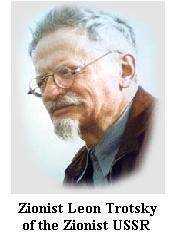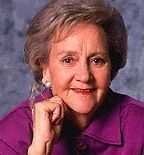James Stenzel
Presents...
This
Scholarly Library of Facts about Domestic &
Worldwide Zionist Criminality

The Jew Watch
Project Is The Internet's Largest Scholarly Collection of Articles on Zionist
History
Free Educational Library for Private Study, Scholarship, Research &
News About Zionism
We Reveal Zionist Banksters, News Falsifiers, PR Liars, Neocons, Subversives,
Terrorists, Spies & More
The Jew Watch Project's 1.5 Billion Pages Served Demonstrate Our Focus on Professionalism
An Oasis of News for
Americans Who Presently Endure the Hateful Censorship of Zionist Occupation
|
 |
Top: Jewish Leaders Folder:
Katherine Meyer Graham, Owner of Washington
Post Company
The Washington
Post's Media Holdings
( Hoover's Company Profiles ) top of page
Hoover Business Summary
The Washington Post Company has operations in newspaper publishing, magazine
publishing, TV broadcasting, and cable TV. It presides over the highly respected
The Washington Post newspaper and the #2 weekly newsmagazine, Newsweek.
The publisher's portfolio also includes more than 20 Maryland community
newspapers and half of the International Herald Tribune (Paris). It owns
six TV stations, a regional sports cable network based in Detroit, and a
regional cable system that serves mostly rural areas. The company also owns
Kaplan Educational Centers, a test-preparation company, and a number of
other smaller publishing and communications-technology operations.
Top Competitors: Gannett -- New York Times -- Time Warner top
of page
Catherine
Meyer Graham Autobiography
 Star Tribune, 02-23-1997, pp 18F. top
of page
Star Tribune, 02-23-1997, pp 18F. top
of page
Newsmaker Graham's view from atop the Post // Owner of Washington's
star paper is candid but detached describing
her road from subservience to corporate power
Personal History
· By: Katharine Graham.
· Publisher: Knopf, 642 pages, $29.95.
· Review: Washington Post boss Graham tells a sad tale of a neglected
childhood followed by an abusive marriage before she learned the ropes as
an executive.
Katharine Graham, who owns the Washington Post, Newsweek magazine and
several TV stations, has written a fascinating and candid memoir that is
unusual for the fact that she makes only occasional appearances in it.
Graham is physically present; we learn almost everything she' s ever done.
But she often seems emotionally detached. In 650 pages, we learn little
of why she did what she did or how she felt about it.
She was born in June 1917, the third of five children, to Agnes and Eugene
Meyer, a wealthy financier. Agnes proved a cold, distant and overbearing
mother, something to which Katharine makes repeated references. "I
can't say I think mom genuinely loved us," she writes. Her nanny was
"the only person who was physically affectionate to me." She recalls
spending one summer alone, reading in her room.
In 1933, her father purchased the Washington Post, at the time a paper of
little influence in a five-paper market. He spent millions of dollars improving
the plant and product. In 1946, he named Katharine's young husband, Phil
Graham, publisher.
At this point, the book becomes a personal history of her husband, which
is almost understandable given that at the time, women were largely considered
extensions of their husbands.
Katharine had gone from subservient to her domineering, unapproving mother
to subservience to a domineering, often unapproving husband. When the Post
went public, her father gave Phil "the larger share of stock because,
as dad explained to me, no man should be in the position of working for
his wife," she writes. "Curiously, I not only concurred, but was
in complete accord with this idea."
She also lacked confidence. "I only felt secure when Phil, whom the
President {of the United States} liked, was with me and could do the talking."
Their marriage was not all it seemed to be. He was a frequent drunk who
became abusive. He was also a philanderer and, as she discovered later,
suffered from manic depression. Once, he left her - taking his majority
share in the company with him - planning to marry his mis-tress. In one
of the most emotional sections of the book, Katharine Graham says, "I
seemed to be living on another planet." Despite all the misery he had
caused her, she begged him to come back.
Another bout of depression eventually brought him back home, where, even
after treatment, he killed himself. It must have been a terrible time. But
its affect on her or her children isn't mentioned. The day after the funeral,
she takes off for a vacation in Istanbul (where her mother has chartered
a yacht). She'd done the same thing earlier, a week after her father died,
returning to Europe to pick up her children (for some reason they weren't
brought home to attend their grandfather's funeral) only to change her mind
and extend her vacation by three weeks. Maybe the rich are different.
Finally, confidence - and celebrity
She ultimately decided to take over management of the company, and she admits
she was bad at it. The poor decisions made under her watch included ill-conceived
purchases (the Trenton Times, for one), start-ups (Inside Sports) and hires.
She quickly earned a reputation of being difficult.
The book picks up steam as Graham grows confident as an independent, accomplished
executive. She discusses the Post's role in the Pentagon Papers trials,
the Watergate expose and a strike by the press-workers' union, which the
paper ultimately won. Just when she seemed to be getting the hang of running
the company, she decided to retire.
While this is not a personal history, it is a unique view of history being
made, as one of the nation's most important newspapers reached that pinnacle. It's also a fascinating glimpse at how the super-rich
live. Graham was the guest of honor at writer Truman Capote's famous Black
and White Ball.
Other interesting anecdotes include the revelation that reporter Carl Bernstein
almost didn't get the Watergate assignment that made him famous: He was
about to be fired for irresponsibility.
There's President Reagan on his hands and knees picking up ice cubes from
a spilled drink at a party she threw. There's Phil Graham hoping no one would see him sneaking into Douglas Dillon's house
through a window to tell him that President Kennedy wanted him to run the
Treasury.
In fact, there's so much of value and interest here it seems silly to quibble
over what isn't included - even if it is the author.
· Curt Schleier is a River Vale N.J. reviewer. top
of page
The Washington
Post Company's Businesses top of page
Found at http://www.washpostco.com/co_biz.htm
on July 3, 1998
Newspapers
The Washington Post
- 809,340 daily and 1,129,519 Sunday - 20 foreign, 5 national,
and 13 metropolitan news bureaus
The Washington Post
National Weekly Edition
The Washington Post
Writers Group - 27 writers-cartoonists - material printed
in newspapers and magazines throughout USA.-
The Herald
The Gazette Newspapers
21 newspapers and 11 military publications
Robinson Terminal Warehouse Corporation
Capital Fiber Inc.
Magazines
Newsweek -
3,100,000 circulation
Newsweek International
- 767,000 circulation
Newsweek Nihon
Ban
Newsweek Hankuk Pan
Newsweek En Espanol
Itogi
Tempo
Post-Newsweek Business
Information, Inc.(formerly TechNews, Inc.)
Broadcasting
Post-Newsweek Stations,
Inc.
WDIV-Detroit - 1,771,950 television households
KPRC-Houston - 1,595,350 television households
WPLG-Miami-Ft. Lauderdale - 1,363,260 television households
WKMG-Orlando - 1,021,970 television households
KSAT-San Antonio - 641,740 television households
WJXT-Jacksonville - 493,160 television households
Cable
Cable One (635,000
subscribers in 18 states)
Other Businesses
Digital Ink
washingtonpost.com
Parent's Guide to Children's Software '97
PhotoStore
Kaplan Educational Centers
Legi-Slate, Inc.
State Capital Strategies
Moffet, Larson & Johnson, Inc.
Affiliates
International Herald Tribune - average daily paid circulation of 200,000 in over 180 countries
Los Angeles Times-Washington
Post News Service - A supplier of spot news, features,
and commentary to more than 600 clients in 47 countries
Bowater Mersey Paper Company Limited
top of page
Archived for Educational Purposes only Under U.S.C. Title 17 Section 107
by Jew Watch Library at www.jewwatch.com
*COPYRIGHT NOTICE**
In accordance with Title 17 U.S.C. Section 107, any copyrighted work in the Jew
Watch Library is archived here under fair use without profit or payment to those
who have expressed a prior interest in reviewing the included information for
personal use, non-profit research and educational purposes only.
Ref. http://www.law.cornell.edu/uscode/17/107.shtml
If you have additions or suggestions
Email Jew Watch

 Star Tribune, 02-23-1997, pp 18F.
Star Tribune, 02-23-1997, pp 18F.